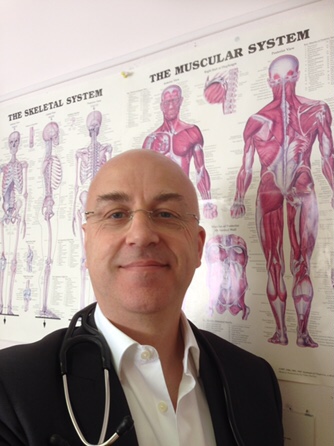 For those who suffer from hay fever, dread can set in when that time comes around each year. The PYB Health content team has taken 5 minutes out of Dr Preest’s busy day to pick his brains on how to make the hay fever season bearable!
For those who suffer from hay fever, dread can set in when that time comes around each year. The PYB Health content team has taken 5 minutes out of Dr Preest’s busy day to pick his brains on how to make the hay fever season bearable!
How to make the hay fever season bearable
Question: What are the key symptoms of hay fever?
Dr Preest: The main symptoms affect the eyes, nose and throat and consist of:
• Eyes – itching and watering
• Nose – itching and running
• Tickly throat
• Sneezing, coughing and even wheezing for some
Question: Do people sometimes mistake hay fever for a common cold?
Dr Preest: Yes, sometimes this happens and the symptoms can be very similar. Generally speaking, the symptoms of hayfever are more in keeping with irritation, so patients get itchy watering eyes, itchy nose and throat. Contrary to the name “hayfever”, patients do not get a fever or raised temperature and the symptoms of hayfever for many tend to fall into the category of “nuisance” rather than “unwellness”!
Question: Is it always grass that causes hay fever or are there different types of triggers?
Dr Preest: No. Hayfever can be caused by all sorts of pollen. For most people, it is grass pollen that causes the problem and this usually peaks in June or July. The levels and exact timing depends on weather conditions. Some people, however, develop the same symptoms with pollen from other plants including trees. This can happen very early in the year if the weather conditions are right and the clue for many people is that they get the symptoms at the same time of year. I once had a patient who noticed that she developed “hayfever” symptoms in the spring since moving in to the area and by a process of elimination, we managed to attribute it to birch pollen.
Question: Can it be helpful to head to the seaside or the city to avoid hay fever in the countryside?
Dr Preest: It can help to spend a day at the seaside, because the breeze coming in from the sea usually carries less pollen than inland. However, the benefits only last for as long as you’re there and for most people, it’s a case of trying to carry on life as normal with work (or exams!) in their usual environment
Question: What are the best ways to minimize symptoms?
Dr Preest: See my earlier tips on prevention
Question: Can babies and children get hay fever and what can you use to treat them?
Dr Preest: Anyone can get symptoms and at any age, although younger people and children tend to suffer the most. The treatment is the same, irrespective of age although some medicines have age restrictions placed upon them when issued over the counter. Again, the Pharmacist will be able to advise on each individual case.
You can find out more about how to treat hay fever and watch our support video here.
